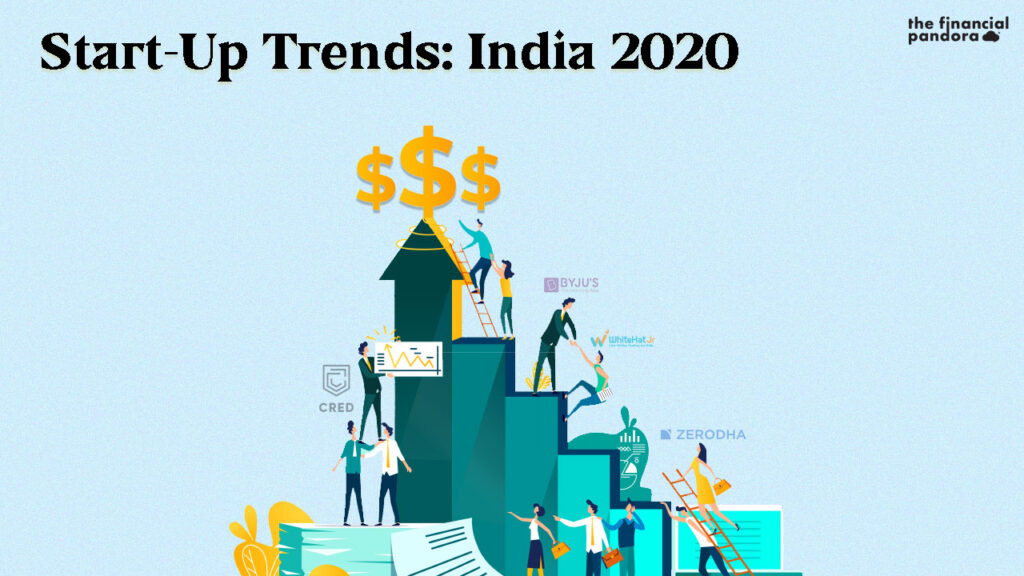The decades of venture
With its large population of around 1.39 billion people, India has always been an attractive market for foreign companies eager to capture the market. But the number of people is not the only factor. The ever-expanding middle class, steady urbanization, young and millennial population combine to form a lucrative market place.
The population demographics, combined with a mostly positive overall macro-economic outlook, private equity, and venture capital funds, started testing Indian waters in the early 2000s. As the decades progressed, the amount of Foreign Direct Investment (FDI) grew with government liberalizing laws and initiatives like ‘Startup India’ and ‘Make in India’. So did the size of the deals themselves.
The FDI inflows were swelling as of 2019 to USD 49 billion making India 8th in the amount of FDI inflows (above Germany and Canada) when the world had no clue that a pandemic would disrupt everything.
The disruptor’s disruption
“In past difficult times, entrepreneurs have displayed farsightedness and creativity that could not have been believed to exist. These became the flagpoles of innovation and new technology today.” – Ratan Tata
There is no doubt that covid-19 has disrupted the entire world’s market place. With that, the risk of venture capitalist shoots up like a SpaceX rocket as the companies they have invested in, face cash crunch at best and close-downs at worst.
But, only in the adverse time, come great opportunities. Even though the pandemic has hit India’s economy hard, the large funds saw the opportunity to invest, and FDI started to rise again after a fall in June 2020. Looking at the trends and numbers of FDI is essential as it also contains investments made by venture funds in start-ups of India.
Sectoral distribution of the funding raised
Start-ups raised a total funding of about USD 8.4 billion in the calendar year 2020, out of which September alone saw inflows of ~USD 1.9 billion. While, in 2019, start-ups raised USD 12 billion. It shows around 30% decline year-over-year. The volume of registered deals decreased too from 894 in 2019 to 765 in 2020.
The major sectors that received funding were EdTech (USD 1.8 billion), Fintech & Financial services (USD 1.5 billion), PropTech (USD 1.03 billion), FoodTech (USD 613 million), and Retail (USD 521 million).
The early-stage start-ups have attracted less funding than the late stage as the risk becomes higher in these uncertain times. EdTech, Fintech, and Software-As-A-Service (SAAS) platforms remain in the spotlight because of the pandemic and the resulting lockdowns.
Key buzz creators of 2020
The EdTech sector created the most massive buzz as lockdowns forced teachers and students to provide and receive education over the internet. EdTech company Byju’s has raised USD 545 million from Tiger Global, General Atlantic, BOND, and DST Global and ended the year with a valuation of USD 10.5 billion. Byju’s also acquired children’s coding company, WhiteHat Jr. for USD 300 million.
Another EdTech player, Unacademy, raised USD 150 million from SoftBank to make its entry into the unicorn club this year.
Cred, a fintech start-up valued at USD 800 million after their series C, raised USD 81 million from DST Global. Razorpay, another fintech start-up entered the unicorn club after raising USD 100 million in a round led by GIC and Sequoia.
Another industry that had a large break was online food delivery companies. Zomato, one of the key players, raised around USD 1.03 billion in 2020 alone from various investors and acquired Uber Eats (India) for over USD 200 million.
Oyo received USD 807 million from SoftBank to stay in operation during the crucial time of the lockdowns.
As we talk about creating a buzz, we cannot ignore one of the most incredible investment streaks by Reliance’s Jio Platform. It raised over USD 25 billion from Facebook, Google, Silver Lake, Mubadala, and PIF of Saudi Arabia.
Unicorn Club: Batch of 2020
India is now home to 38 unicorns (defined as an organisation with a valuation of at least USD 1 billion) from which 11 of them joined the club in 2020 alone. The trend of attracting funds remains skewed towards Fintech, EdTech, SaaS, and AI-powered platforms as the world become more automated and dependent on technologies.
- Pine labs: It provides a merchant platform and makes software for point of sale (PoS) machines. It raised an undisclosed amount from Mastercard at a valuation of approximately $1.5 billion.
- FirstCry.com: It is a leader in baby and mother care products. It attained unicorn status with USD 150 million raised from the SoftBank Vision Fund.
- Nykaa: It is an online beauty and lifestyle retailer. It attained unicorn status after obtaining funding from Steadview Capital.
- Postman: It is a collaboration SaaS platform for API development. It attained unicorn status after USD 150 million in funding.
- Zerodha: It is a bootstrapped online platform for brokerage free trading of stocks. Self-assessed valuation of USD 1 billion.
- Unacademy: Started as a YouTube channel to provide education videos, became a key player for online education during the pandemic. It attained unicorn status after USD 150 million in funding by SoftBank.
- Razorpay: It is a fintech aiming to simplify the payment process for SMEs. It attained unicorn status after raising USD 100 million in Series D led by GIC and Sequoia.
- Cars24: It is an online platform for buying and selling used cars. It attracted investments as there is an opportunity for substantial growth due to the closure of public transport.
- Zenoti: It is a SaaS provider for the salon and spa industry. It obtained unicorn status after raising USD 160 million in Series D.
- Dailyhunt: It is a Content and entertainment providing platform. It obtained unicorn status after raising $100 million from AlphaWave, Google, and Microsoft.
- Glance: It is an AI-powered platform that provides ad-free content to smartphones. It is the InMobi subsidiary, and the fastest unicorn status gained (in less than two years) after raising USD 145 million from existing investors.
This post was written in collaboration with Asif Yahiya Sukri LLP. Asif Yahiya Sukri LLP provides unparalleled personalized financial services to a broad range of clients across different geographical locations. With a presence in the USA, India and the MENA region, they ensure that all of your financial decisions are made carefully and with your best interests in mind. They are innovators who understand what goes into building companies.
You can also reach out to them on info@aysasia.com
References:
- Bain – India Private Equity Report 2020
- PwC – Deals in India: Outlook 2020
- State of Indian Start-up funding
- Unicorns list
- Crunchbase (for the amount of funding raised by each start-up)
Follow Us @




